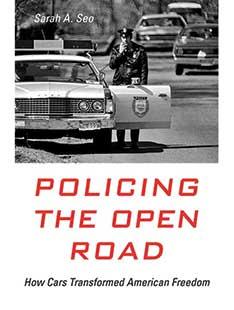New Podcast at PAW Online: Sarah Seo ’02 *16

Constitutional questions The Fourth Amendment protects people and their houses, and papers, and effects. Effect is another word for a movable thing, and a car is obviously a movable thing. And so, under the common law, an officer needed a warrant to stop and search a car. But there was a problem: Cars were easily mobile. People could get in a car and drive off at any time they wanted to. This posed really huge obstacles for law enforcement.

Legal leeway One unintended consequence is “driving while black.” The problem of racialized policing on the road that we see today is a product of this history. … When a police officer stops somebody for a minor traffic violation today, during that traffic stop, the Fourth Amendment starts allowing the officer to investigate further if the officer has a hunch or a suspicion that there might be more in the car. For minority drivers that often can result in a search of the entire car.











No responses yet